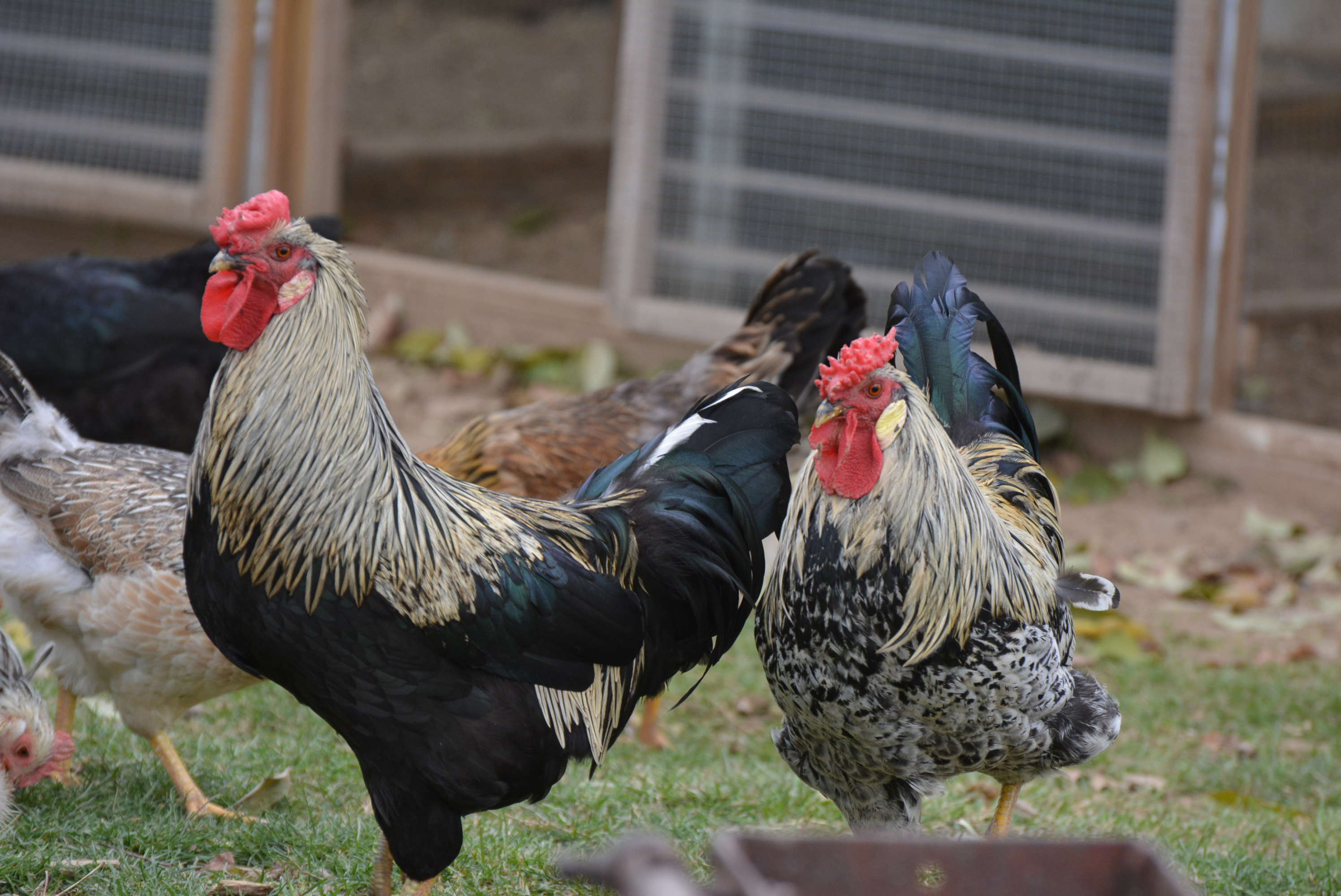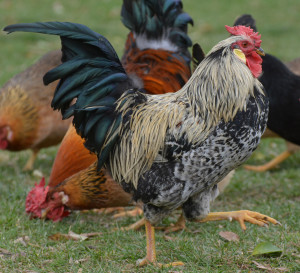
Many things spring to mind when one thinks about horse country in northern Oxford Township.
Global diversity isn’t typically one of them.
But on one picturesque farm, the inhabitants are truly multicultural in that they carry genetic material from 20 countries spread across five continents.
And it’s all contained in one feather-covered package.
Walkabout Farm, a 77-acre property located at 3550 Delano Rd., between Oakwood and Davison Lake roads, is home to both Cosmopolitan Chickens and Planetary Community Chickens.
These unique birds are doing everything from expanding the boundaries of art and science to supplying fresh, healthy food to hungry folks in need.
“There is no genetic engineering going on here,” said farm owner Gary Wasserman. “This is just natural crossbreeding.”
In 2016, Wasserman, who owns Wasserman Projects, an art gallery in downtown Detroit’s Eastern Market, became involved in the Cosmopolitan Chicken Project (CCP).
Started in 1999 by Belgian conceptual artist Koen Vanmechelen, the CCP is a global art project that involves the crossbreeding of chickens from around the world as a way to study the impact and significance of biological and cultural diversity. The project seeks to create a truly cosmopolitan chicken that carries genes from all of the world’s national and regional breeds.
It started by crossbreeding chickens from Belgium and France to create the Mechelse Bresse, then went from there.
This year, the 22nd generation of Cosmopolitan Chicken was bred. It’s called the Mechelse Maatiaiskana and it carries the genetic information of chickens from 21 countries, including Belgium, France, England, United States, Germany, The Netherlands, Mexico, Thailand, Brazil, Turkey, Cuba, Italy, Russia, China, Egypt, Senegal, Slovenia, Austria, Indonesia, Denmark and Finland.
Two of the breeds contained in today’s Cosmopolitan Chicken came from the U.S. – the Jersey Giant and the Wyandotte.
It was through adding the Wyandotte breed to the gene pool that Wasserman became involved in the CCP. The results of that crossbreeding were called Mechelse Wyandotte and represented the 20th generation of the Cosmopolitan Chicken.
The 21st generation, dubbed Mechelse Dansk, has now been bred at Walkabout Farm.
They spend their days existing as living pieces of art.
“These chickens are never killed or eaten,” Wasserman said.
Even their eggs are not consumed.
Wasserman explained the yolks are combined with colored pigments and used for a special method of painting called tempera.

Mixing all these various breeds over time has made each successive generation of the Cosmopolitan Chicken “far more robust” than its predecessors, according to Wasserman.
They have longer life spans, are more fertile and are less susceptible to disease.
“The more they’re mixed, the better looking they become and the stronger they become,” Wasserman said. “They can live up to 14 years, which for a chicken is bizarre.”
Because of this, Cosmopolitan Chickens are being studied by scientists from various fields, including immunology, oncology, fertility and sociology, according to Wasserman.
Wasserman Projects is using the Cosmopolitan Chicken to do its part to help revitalize Detroit and combat hunger in the city.
The gallery partnered with Vanmechelen to bring what’s called the Planetary Community Chicken to Detroit’s Oakland Avenue Urban Farm, a nonprofit, community-based program dedicated to cultivating healthy foods, sustainable economies and active cultural environments.
The Mechelse Wyandotte was crossbred with a Hendrix Genetics’ ISA Brown industrial chicken to create the Planetary Community Chicken.
Eggs produced by the Planetary Community Chicken have yolks with a “deeper” color and “richer taste,” according to Wasserman, who added that even the egg whites are “more satisfying” in terms of flavor.
As for the meat, Wasserman said it’s “tough,” but “the bone marrow is so rich that it makes a spectacular chicken stock” that’s ideal for soups.
Planetary Community Chickens are bred at Walkabout Farm, then shipped to the Oakland Avenue Urban Farm, which sells food and gives it away to local folks, who either can’t afford fresh food and/or have no access to it due to the limited number of grocery stores in Detroit.
Wasserman is trying to sell Walkabout Farm (see story right), but he would like to continue raising both types of chickens in this area by either purchasing another piece of property for them or taking on a partner.
“I haven’t quite figured that out yet, but it will continue,” he said.

Leave a Reply